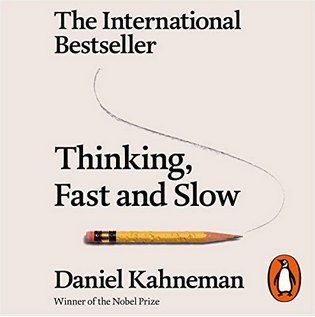
One of my favourite books is Daniel Kahneman’s Thinking, Fast and Slow.
The following is from the book’s introduction…
“As we navigate our lives, we normally allow ourselves to be guided by impressions and feelings, and the confidence we have in our intuitive beliefs and preferences is usually justified. But not always. We are often confident even when we are wrong, and an objective observer is more likely to detect our errors than we are.”
Kahneman’s “objective observer” plays an important role in lives.
Many advisers reading this may already be relating their own roles as their client’s objective observers.
I’m guessing a far fewer reading this are also relating to the inconvenient truth of Kahneman’s quote.
Who plays objective observer for the objective observers?
ADVISING ADVISERS
For most advisory teams, an objective observer could quickly conclude that the majority of their clients are less interested in their superannuation balances or tax returns than they are in the assurances from their advisers that ‘everything is in order’. Advisers are not as good at valuing the assurance and confidence they provide as they are at valuing asset balances, compliant tax records or underwriting efforts.
An objective observer would almost always better grasp the impact of advisory experience upon clients’ lives. Like a surgeon caught up in her busy day-to-day list of patients, advisory teams easily forget and devalue the difference simple, deliberate, and experienced advice can have on a lifetime of habits and hopes. When clients recount their thanks for unforgettable insights from their advisers, the same advisers are quick to discount it as simply part of their job, without due recognition it is why they do their job.
An objective observer would also better recognise that the best asset allocation, the cheapest superannuation fund, the perfect trust structure will be as strong as tomorrow’s weather prediction. They would note that clients seem to progress despite unpredictable markets, ever-changing trends, inconsistent legislation, and giddy product offerings. Progress is measured in what matters, such as better behaviours, greater awareness, reasonable accountability, and access to a group committed to serving their best interests.
INPUTS v OUTPUTS
Despite the observations of the objective observer, many advisory teams fall short in the positioning, management, and pricing of their advice remaining stuck on practices that date back to the last century of valuing the inputs they deliver – their effort or their products – rather than the value of the true outputs they provide.
The inconvenient truth is unless this imbalance of inputs and outputs is arrested and separated by advisory teams, they are in danger of losing control of on-going fees not because they were not valuable, but because they had trained themselves and their clients to hide their value behind things far less valuable in advisory relationships – products and effort.
The objective observer might call it a tragedy – she’s not wrong.
What do you reckon?
ABOUT JIM STACKPOOL
For over 30 years, Jim has influenced, coached, and consulted advisory firms across Australia. His firm, Certainty Advice Group coaches, trains and is building a growing group of advisory firms delivering comprehensive, unconflicted advice, priced on value. The community of advisory firms aligns with Australia’s highest and only ACCC/IP Australia Certification Mark standard of comprehensive, unconflicted advice – Certainty Advice. He has authored three books regarding financial advisory firms and is due to release his fourth book in Spring this year – What Price Value.
